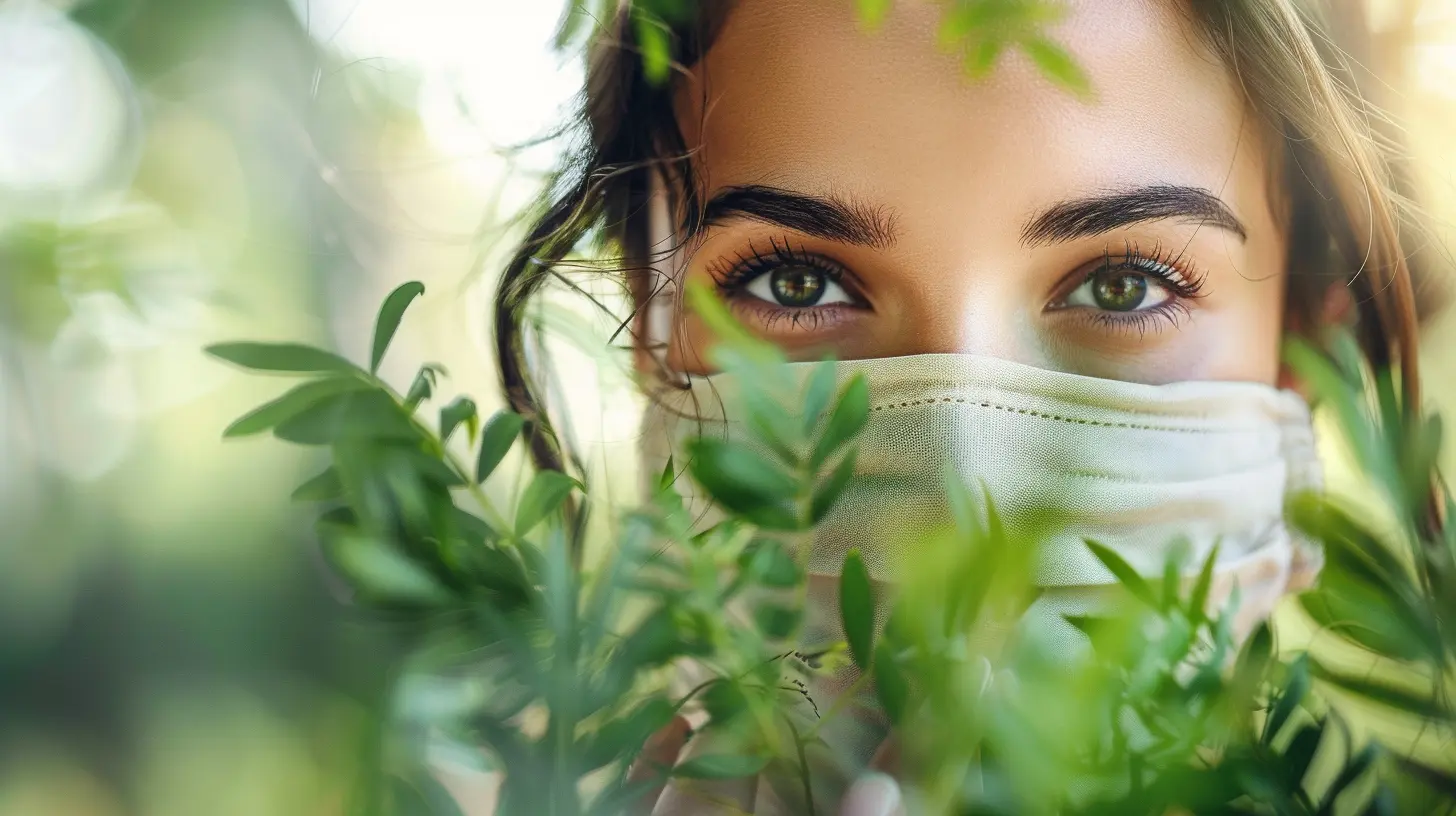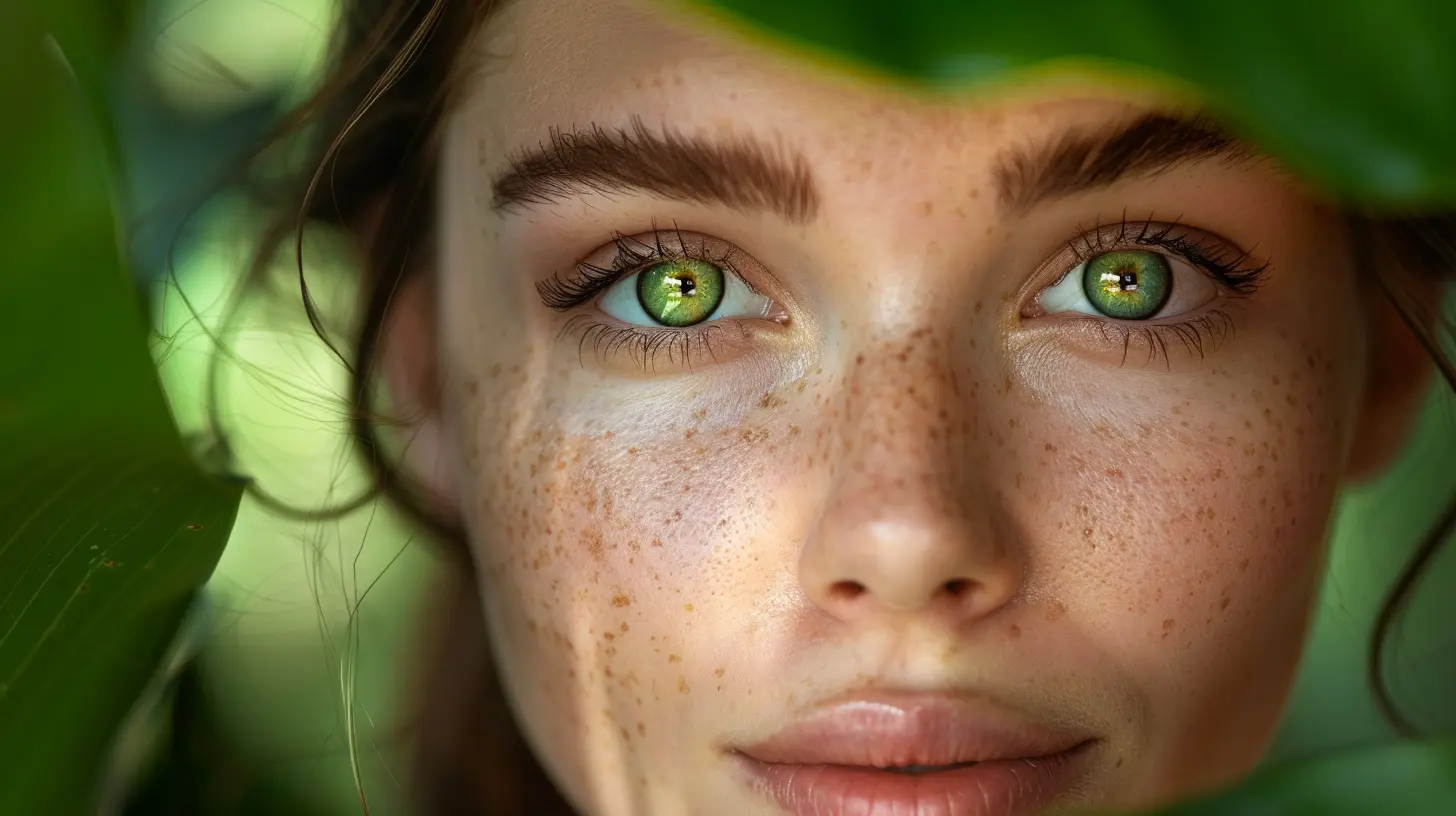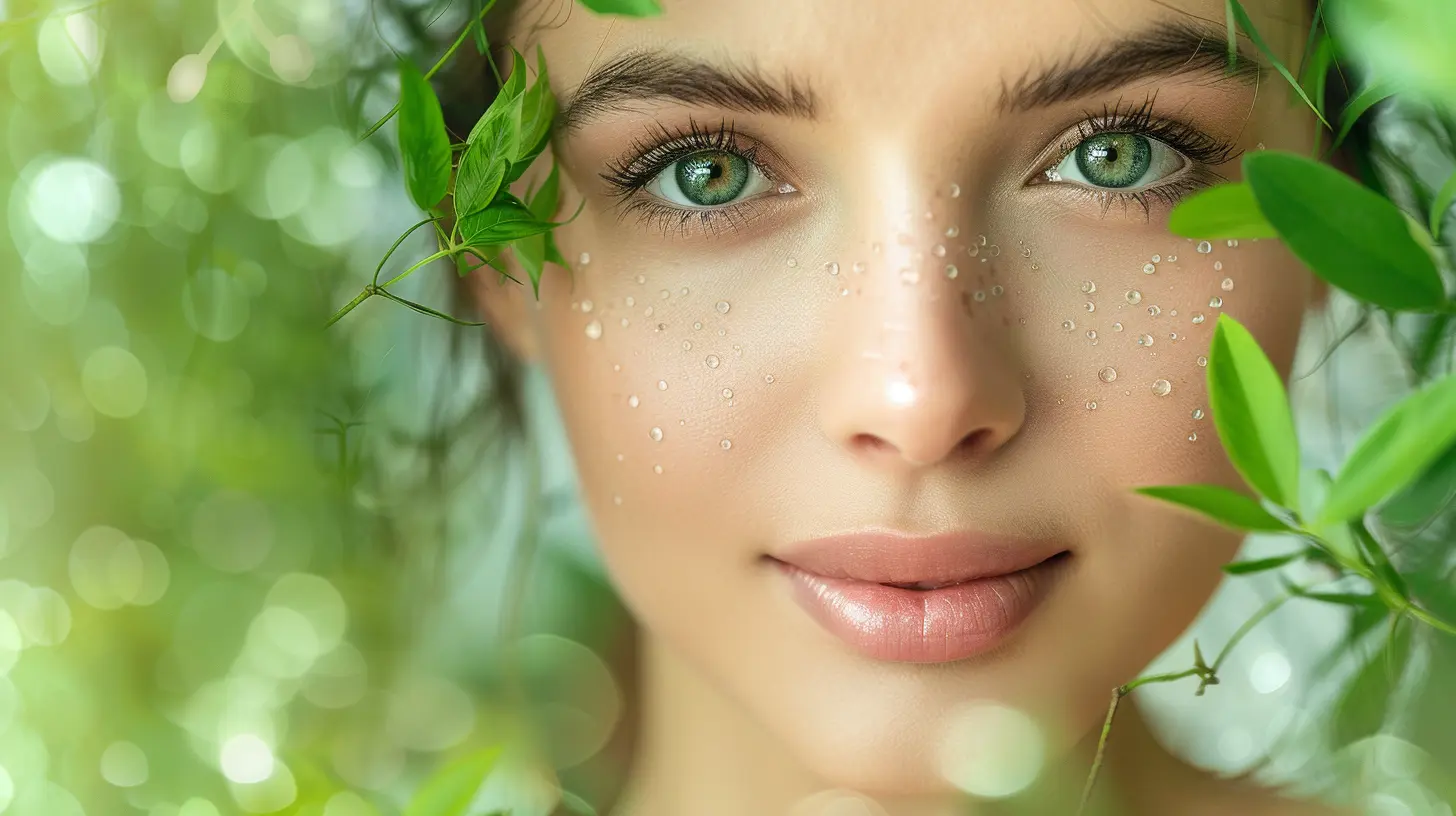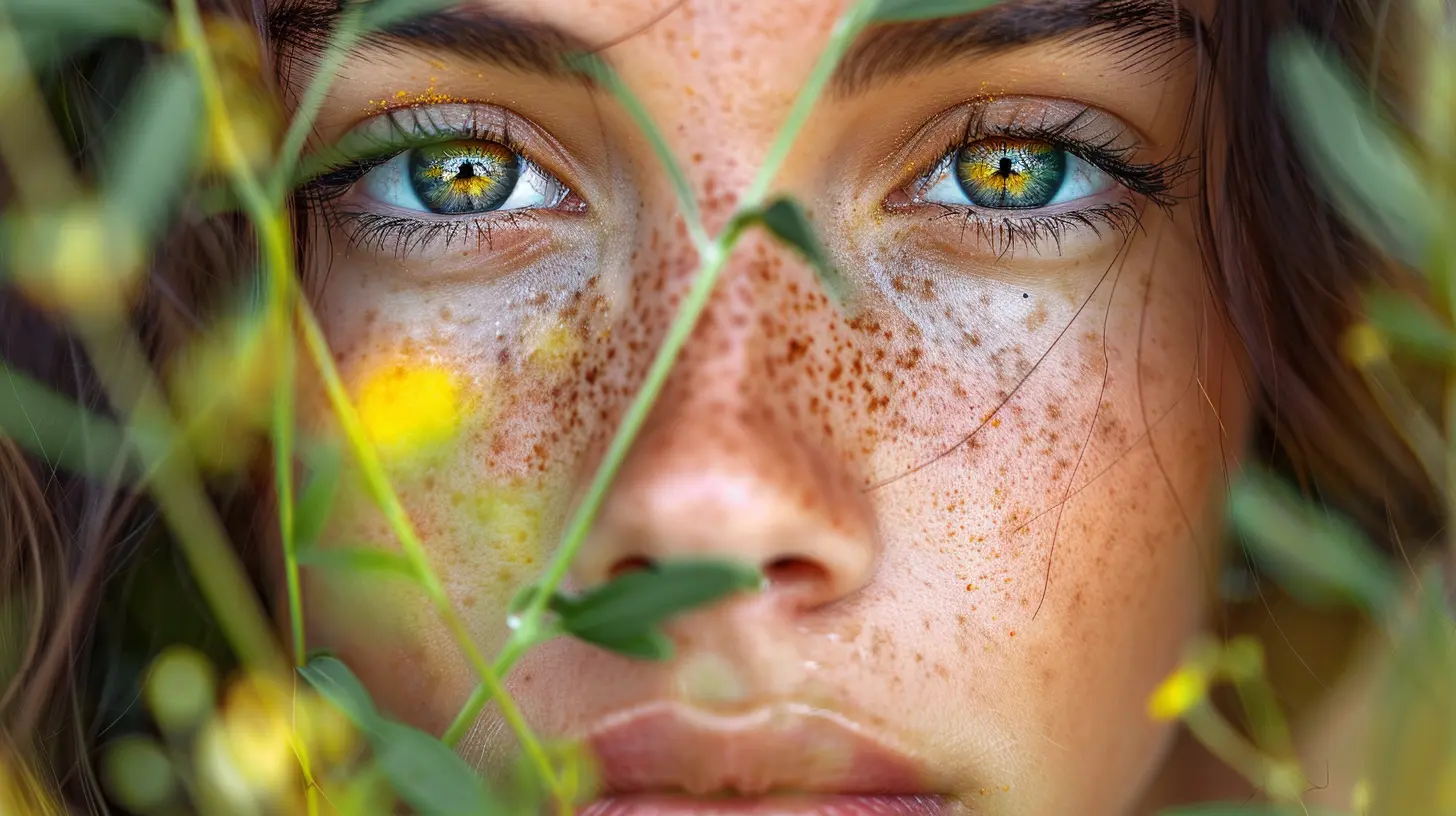How to Protect Your Skin from Everyday Environmental Pollutants
8 August 2025
Ever feel like your skin is under constant attack? You're not wrong. Environmental pollutants are sneaky little culprits that wreak havoc on your skin every day without you even noticing. They’re floating around in the air, clinging to your skin, and silently stirring up trouble. But don’t panic — there’s a lot you can do to protect your skin and keep it looking healthy, radiant, and pollution-proof.
In this article, we’re diving deep into how pollutants affect your skin and, more importantly, what you can do about it. Spoiler alert: you don’t need a 20-step skincare routine or expensive products — just knowledge, consistency, and a bit of TLC.
What Are Environmental Pollutants Anyway?
Let’s start with the basics. Environmental pollutants include a cocktail of harmful particles and chemicals in our surroundings — think smog, dust, smoke, UV radiation, heavy metals, car exhaust, and even secondhand cigarette smoke. Gross, right?These pollutants can:
- Penetrate your skin
- Break down collagen (that stuff that keeps your skin bouncy)
- Lead to premature aging
- Cause discoloration and uneven skin tone
- Trigger acne and inflammation
In short, they’re bad news for your skin.
How Do Pollutants Damage the Skin?
Imagine your skin is a sponge. It absorbs a lot more than you think. When we’re out and about — walking to work, sitting in traffic, or even chilling at the park — pollutants latch onto our skin and start causing damage.Here's how they strike:
1. Oxidative Stress
Pollutants trigger the production of free radicals — unstable molecules that damage skin cells. This leads to inflammation, dryness, and loss of elasticity.2. Clogged Pores
Dust and particulate matter settle onto your skin like invisible dirt. If you don't cleanse properly, they block your pores and cause breakouts.3. Dehydration
Airborne toxins strip the skin of its natural oils. So, if your skin feels tight and parched after a city stroll, pollution could be the culprit.4. Accelerated Aging
Ever heard of "pollu-aging"? It’s a real thing. Pollution fast-forwards the aging process by breaking down collagen and elastin, leading to wrinkles and dullness.
Signs That Pollution Is Affecting Your Skin
Not sure if pollution is messing with your glow? Here are some telltale signs:- Skin looks dull or tired even when you’re well-rested
- Increased sensitivity or redness
- More frequent breakouts or rough patches
- Uneven skin tone or dark spots
- Fine lines showing up earlier than expected
If any of these sound familiar, your skin might be screaming for protection.
How to Protect Your Skin from Everyday Environmental Pollutants
Now, let’s talk about what really matters — how to shield your skin from this daily assault. Here’s your ultimate skin armor plan.1. Cleanse Like a Pro
This one’s non-negotiable. Pollution particles stick to your skin and won't come off with just water. Use a gentle yet effective cleanser — ideally one that dissolves grime and makeup without stripping your skin’s barrier.💡 Pro Tip: Double cleansing at night is especially helpful. Start with an oil-based cleanser to break down dirt and finish with a water-based one to cleanse the skin deeply.
2. Use Antioxidants Like Your Skin’s Life Depends on It
Antioxidants are your skin’s personal bodyguards. They neutralize free radicals and prevent cellular damage. Think of them as your internal clean-up crew.Look for:
- Vitamin C (for brightening and protection)
- Vitamin E (to nourish and heal)
- Niacinamide (to strengthen the skin barrier)
- Green tea extract (anti-inflammatory and soothing)
Try adding a vitamin C serum to your morning routine under your moisturizer for maximum protection.
3. Moisturize and Seal the Deal
Pollution can dry your skin out and mess with its protective barrier. A good moisturizer doesn’t just hydrate — it acts like a shield, locking in moisture and keeping pollutants out.Look for moisturizers with:
- Ceramides
- Hyaluronic acid
- Squalane
- Shea butter
Don’t skip this step — it's a basic but powerful line of defense.
4. Don’t Skip Sunscreen (Seriously)
UV rays and pollution are a destructive duo. Sun exposure weakens your skin’s natural defenses, making it more vulnerable to pollution.Use a broad-spectrum SPF 30 (or higher) every. single. day. Yes, even when it’s cloudy or you’re indoors. Many modern sunscreens also contain anti-pollution ingredients — a double win!
5. Add a Barrier Balm or Protective Serum
Some skincare products are designed specifically to protect against pollution. These typically form a breathable film over your skin that repels pollutants without clogging pores.Look for labels saying:
- "Anti-pollution"
- "Environmental defense"
- "Urban protection"
They usually include ingredients like marine algae, probiotics, or plant extracts known for their protective properties.
6. Exfoliate Smartly
Dead skin cells + pollution = a recipe for disaster. A weekly exfoliation helps keep your skin fresh and clear.Use a gentle exfoliant:
- AHA or BHA-based (think glycolic acid or salicylic acid)
- Enzyme-based scrubs (like papaya or pumpkin)
Don’t overdo it — once or twice a week is enough. Think of exfoliation as polishing your skin’s armor.
7. Nourish from the Inside Out
What you eat shows up on your skin. Foods rich in antioxidants help your body fight pollution from within.Load up on:
- Berries
- Leafy greens
- Nuts and seeds
- Fatty fish
- Green tea
Also, stay hydrated. Water helps flush out toxins and keeps your skin plump and happy.
Bonus Tips to Go the Extra Mile
🧖♀️ Facial Mists with Antioxidants
Use a facial mist throughout the day to refresh your skin and add an extra antioxidant boost.🪟 Watch Your Indoor Air
Believe it or not, indoor air can be polluted too. Use air purifiers at home and open windows regularly to circulate fresh air.⛅ Protective Clothing
Wear wide-brimmed hats, sunglasses, and even pollution masks when necessary. Think of them as stylish armor.What About Natural Skincare? Is It Enough?
Ah, the age-old question. Natural and minimalist skincare routines are great, but they aren’t always enough against environmental pollutants. You need specific ingredients that actively fight off pollution damage. So, while your aloe vera gel is soothing, pairing it with some vitamin C might just be the power move your skin needs.Final Thoughts
We live in a world that’s full of environmental pollutants, and while we can’t walk around in a bubble, we can absolutely give our skin the tools it needs to thrive. It’s not about perfection — it’s about protection.Set up a solid routine, build in those antioxidants, shield with SPF, and treat your skin like the precious armor it is. Because let’s be real — your skin faces the world every day. The least you can do is have its back.
all images in this post were generated using AI tools
Category:
Skin CareAuthor:

Madeline Howard
Discussion
rate this article
1 comments
Victoria White
Thank you for this insightful article on skin protection! It’s crucial to be aware of environmental pollutants and their impact on our skin health. The tips you provided are practical and easy to implement. I look forward to incorporating them into my daily routine!
August 23, 2025 at 2:55 PM

Madeline Howard
Thank you for your kind words! I'm glad you found the tips helpful. Here's to healthier skin!


